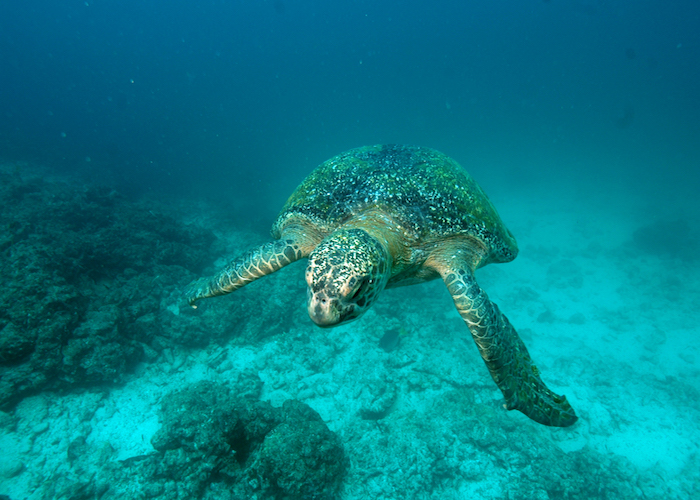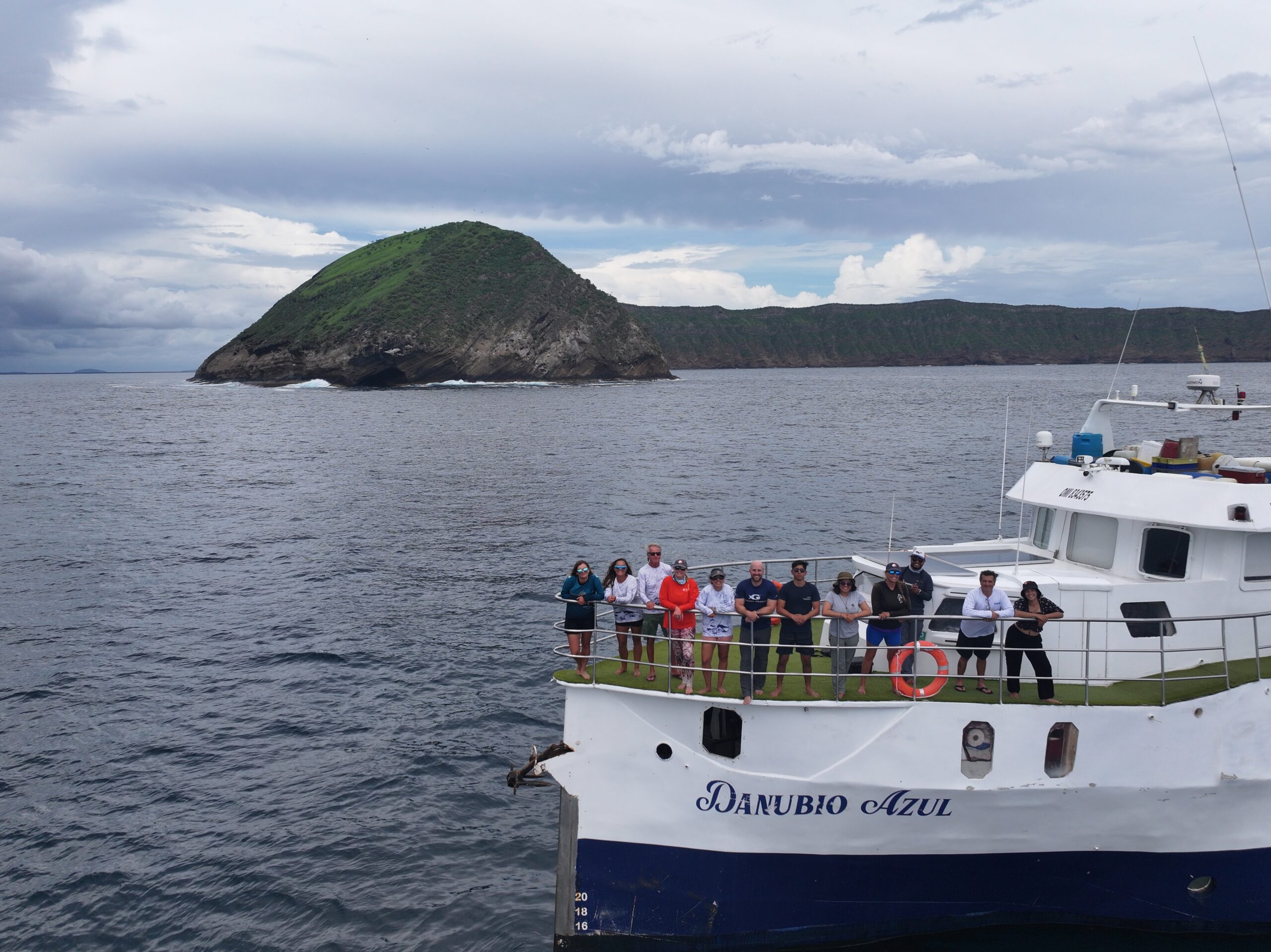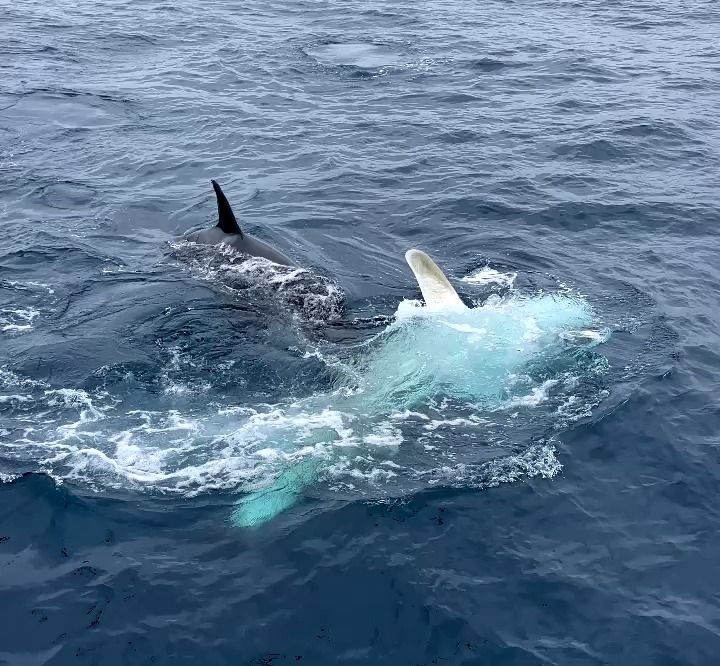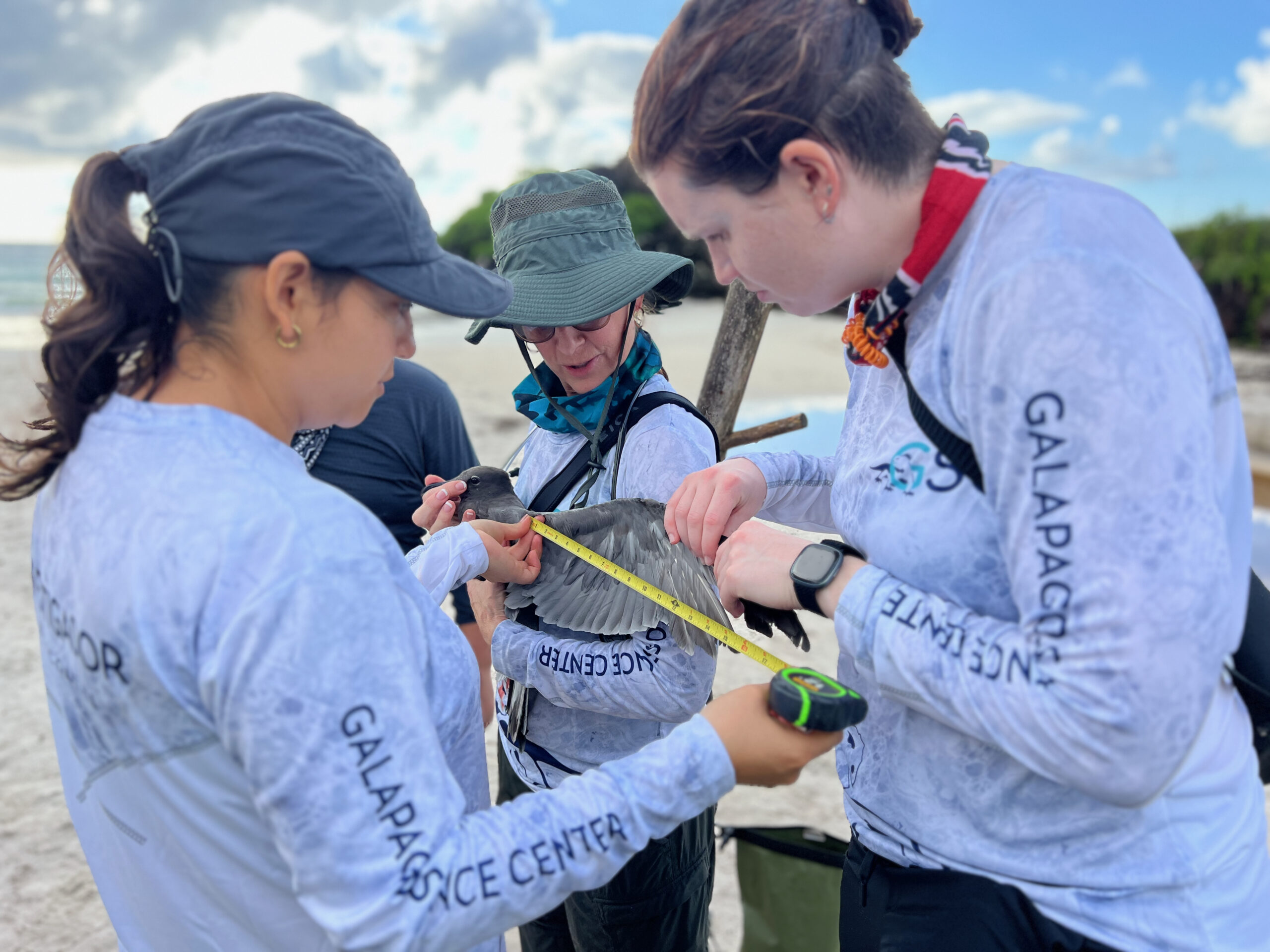A nivel global, la Unión Internacional para la Conservación de la Naturaleza (UICN) recoge en su lista roja a seis de las siete 7 especies de tortugas marinas, estas han sido declaradas en peligro crítico, en peligro o vulnerable.
En Galápagos podemos encontrar 4 de las 7 especies de tortugas marinas, eso lo convierte en un lugar único en el mundo y de gran importancia para la región, sin embargo, sus poblaciones se han visto duramente afectadas por varias amenazas como la contaminación por plástico, el tráfico de vida silvestre, el desarrollo costero y el cambio climático
“El Ecuador cuenta con un área marina protegida que es Galápagos, pero al momento de trasladarse hacia la costa ecuatoriana las tortugas entran en peligro, pueden caer en redes de pesca, ser golpeadas por embarcaciones, se enredan con basura, etc” comentó Juan Pablo Muñoz, profesor e investigador del Galapagos Science Center (GSC)
Las Tortugas marinas son altamente migratorias, razón por la cual es sumamente importante ampliar las áreas de protección y fortalecer las medidas de conservación.
El GSC lidera el proyecto “Galápagos sin plástico”, el mismo que busca recopilar información científica que pueda evidenciar los efectos de los plásticos en la fauna marina para instar a las autoridades a fortalecer las medidas de protección de las áreas protegidas.
Sin embargo, los cambios deben empezar desde casa, las pequeñas acciones pueden dar grandes resultados cuando miles o millones de personas se suman a estas iniciativas.
“Si cada persona en el mundo reduce su consumo de plásticos de un solo uso, sí hace la diferencia” acotó Muñoz
En el marco de la celebración del Día Mundial de la Tortuga Marina, que se conmemora el 16 de junio de cada año queremos compartir con ustedes este reportaje en el cual podrán conocer más a detalle las amenazas a las que se enfrenta esta especia emblemática para Galápagos y el mundo.






